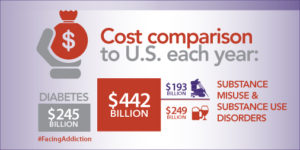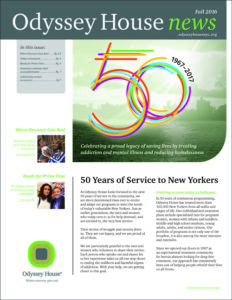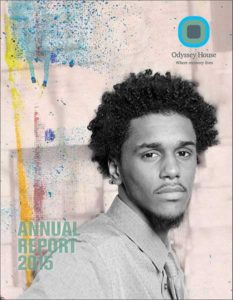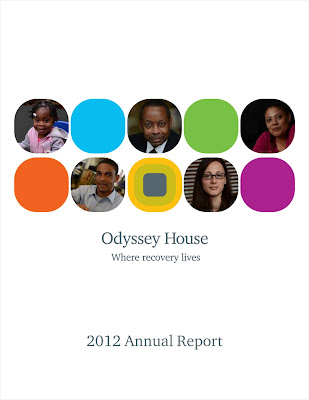$190,000 to Support Peer Engagement Specialists in East Harlem
The New York State Office of Alcoholism and Substance Abuse Services (NYS OASAS) today announced more than $190,000 in funding was awarded to two NYS OASAS-certified addiction treatment providers, Odyssey House and Mount Sinai Behavioral Health System, to support a new peer engagement specialist initiative in East Harlem in New York City. The program, developed by NYS OASAS, is part of Governor Cuomo’s multi-pronged approach to aggressively address substance use disorders in the state. This collaborative effort will focus on reducing street drug use, lowering potential for overdoses and other drug-related emergencies, and addressing community concerns about drug abuse, including the use of synthetics, heroin, and opioids, with a focus in East Harlem.
“A reversal from an overdose is a second chance,” said Lieutenant Governor Kathy Hochul, co-chair of Governor Cuomo’s Combat Heroin and Prescription Opioid Addiction Task Force. “That moment when a person with a substance use disorder is in crisis is an opportune time for us to step in to make sure that that individual is connected to the addiction treatments services he or she needs. This program will help those connections happen in East Harlem.”
Peer engagement specialists, who are knowledgeable about the alcohol and substance use disorder treatment system, will work with Emergency Department (ED) personnel in the hospitals serving the area to help establish connections to addiction treatment and other supports after an opioid overdose reversal or after discharge from another substance use-related ED visit. The two peer engagement specialists, one from each substance use disorder treatment program, also will conduct outreach to connect individuals in 125th Street Corridor with addiction treatment services and mental health and other support services. They will also lead community education events about addiction.
“Connection to addiction-focused care is always critical, but is particularly so after an alcohol or drug-related crisis,” said NYS OASAS Commissioner Arlene González-Sánchez. “Connecting a person to treatment after an overdose reversal is crucial to getting them started on the path to recovery, and can help prevent relapse and lower the risk for a potential subsequent overdose. These peer professionals can be the warm hand that individuals need to guide them into treatment so that they can get the help they need and hopefully join the millions of Americans who are living a healthy life in recovery.”
The peer engagement specialists will provide outreach to vulnerable individuals in East Harlem, focusing on the area between 96th and 138th Streets from 5th Avenue East. Their main tasks will be referring individuals for substance use disorder treatment, providing information regarding addiction to individuals, and assisting individuals with accessing treatment. The PESs will also connect with Emergency Departments, community-based organizations, soup kitchens, religious centers, and neighborhood health care and addiction treatment providers. They will also conduct presentations to help increase local knowledge about substance use disorder treatment and support services that are available in the community. They will also track referrals to treatment and support services, and collect other pertinent data to assess the efficacy of the project. NYS OASAS will oversee the initiative.
Dr. Peter Provet, President of Odyssey House, said, “When a community works together to fight drug abuse, individual lives are saved and everyone’s lives are improved. Local partners armed with local knowledge who share a commitment to the neighborhood they live and work in are an essential part of the glue that keeps families together, the streets safe, and businesses and neighborhoods thriving. I am proud to partner with NYS OASAS and Mount Sinai Behavioral Health System on this essential street outreach initiative that extends awareness of treatment services to people in need throughout East Harlem. The peer engagement specialists who will lead this effort understand the importance of reaching people before they overdose because, even with the increased prevalence of naloxone (the opioid reversal medication), emergency services, treatment providers, and hospital detox centers, cannot reach everyone in time to avoid a tragic death. This initiative is a big step forward in protecting the health of New Yorkers struggling with addiction.”
“Mount Sinai is proud to partner with OASAS and Odyssey House in this important initiative,” said Sabina Lim, MD, MPH, Vice President and Chief of Strategy, Behavioral Health, Mount Sinai Health System. “Peer professionals have a critical and invaluable role in the path to recovery for people with substance use disorders. They provide meaningful and proactive connections for people with substance use disorders at a critical time. Effective intervention when the potential for change may be at its greatest will help improve access and continuity of care to treatment and support services. We look forward to working more closely with our partners, to help make a substantive impact in the lives of people with substance use disorders in the communities we serve.”
“The peer engagement specialist initiative is an important step towards combating the substance use disorders that are becoming all too common,” said New York State Senator José M. Serrano. “This important program will allow drug prevention and recovery resources to be readily available, help these individuals remain on a healthy track, and educate the community on the dangers of drug addiction. Many thanks to the New York State Office of Alcoholism and Substance Abuse Services for recognizing the seriousness of this issue, and providing a crucial step to recovery.”
“The OASAS Peer Engagement program represents the type of creative and effective effort necessary to address the challenges created by street drug use,” Assemblymember Robert J. Rodriguez. “This important initiative will help connect those in need with the services necessary to get them into recovery and reduce the number of overdoses on our streets. I am proud to have been an integral part in securing the support necessary to see this program come to fruition. I salute and congratulate Commissioner Sanchez and the staff of OASAS on the program launch today.”
“Substance abuse has become a crisis throughout the country, and addiction prevention services are some of the most vital programs we can offer in the fight to stave off this public health epidemic,” said New York City Council Speaker Melissa Mark-Viverito. “Drug-related emergencies affect our communities and fill our medical centers at an unsustainable rate, and by meeting them at their level by providing peer engagement specialists both in the hospital and on the ground, we can work to ensure that outreach is targeted to the places where it will be most effective. This is a problem that has been felt in El Barrio/East Harlem and around the city, and I applaud OASAS for collaborating with residents to solve this critical issue.”
New Yorkers struggling with an addiction, or whose loved ones are struggling, can find help and hope by calling the state’s toll-free, 24-hour, 7-day-a-week HOPEline at 1-877-8-HOPENY (1-877-846-7369) or by texting HOPENY (Short Code 467369). Available addiction treatment including crisis/detox, inpatient, community residence, or outpatient care can be found using the NYS OASAS Treatment Availability Dashboard at FindAddictionTreatment.ny.gov or through the Access Treatment page on the NYS OASAS website. Visit the #CombatAddiction web pages at oasas.ny.gov/CombatAddiction to learn more about how you can help to #CombatAddiction in your community. Visit www.combatheroin.ny.gov for more information on addressing heroin and prescription opioid abuse, including a Kitchen Table Tool Kit to help start the conversation about the warning signs of addiction and where to get help. For tools to use in talking to a young person about preventing alcohol or drug use, visit the State’s Talk2Prevent website.



 Promoting physical health is a key component of treatment at Odyssey House. The fitness services include a gym with exercise equipment and weights and a regular schedule of organized activities from running programs to yoga and movement exercises. A certified trainer is available to work with residents to plan and track their progress and develop fitness goals, including weight loss and improved stamina, that help restore energy and reduce the risk of diabetes and other diseases.
Promoting physical health is a key component of treatment at Odyssey House. The fitness services include a gym with exercise equipment and weights and a regular schedule of organized activities from running programs to yoga and movement exercises. A certified trainer is available to work with residents to plan and track their progress and develop fitness goals, including weight loss and improved stamina, that help restore energy and reduce the risk of diabetes and other diseases.
 It can’t go on. The death rate from what is a preventable, and treatable disease, is unconscionable. The financial costs are unsustainable.
It can’t go on. The death rate from what is a preventable, and treatable disease, is unconscionable. The financial costs are unsustainable.




